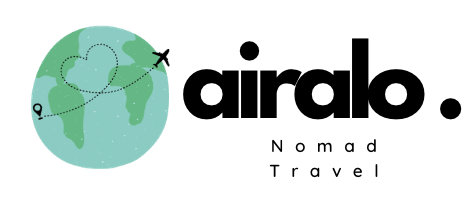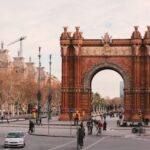
When it comes to retirement, most people envision a peaceful life after years of hard work. However, the concept of early retirement is gaining increasing attention, especially among digital nomads and global travelers. Early retirement is no longer just about enjoying a “golden age” but is becoming an excellent way to achieve a lifestyle change and pursue freedom.
In the digital nomad lifestyle, “early retirement” can mean something different. Digital nomads are individuals who work remotely using the internet and modern technology, allowing them to live and work from anywhere in the world. Unlike traditional retirement, digital nomads’ lives are filled with opportunities for travel and exploration. So, as a digital nomad, would I consider retiring early? This question is worth exploring in depth.
Firstly, let’s look at traditional retirement. What is the common understanding of retirement? It generally falls into two categories. Some people do not plan to retire early; they simply plan to work until they reach 70 and rely on Social Security. They spend their lives saving money in 401(k) accounts, investing, and accumulating savings so they can retire comfortably. This also signifies the end of a long career and the beginning of a relaxed, leisurely life. In many traditional views, retirement is a “farewell to work” moment, an ideal state of enjoying ease and freedom. However, with changing social and economic environments, the definition and forms of retirement are evolving. For digital nomads, early retirement doesn’t mean completely stopping work but can involve choosing a more comfortable working situation. Digital nomad work tends to be more challenging compared to traditional work, so let’s look at some details of early retirement.
Let’s examine the video by Finding Gina Marie–Travel the World, “How We Retired Early to Travel the World Full Time,” where they discuss their choice of early retirement:
“At the end of the day, you need to consider what is truly important in life. Are we striving for that big promotion or millions of dollars? What is really important? We realized it’s about what makes us happy. During the pandemic, we did a lot of thinking. We were working hard, accumulating money, and wondering how much we would need to retire comfortably. But we were unhappy with our jobs. Did we want to work just to afford our lifestyle in San Francisco, a place we loved but couldn’t afford without full-time jobs we didn’t enjoy?
We started to question whether it was worth spending our lives working at jobs we didn’t like to support a lifestyle that didn’t truly make us happy. We asked ourselves, if we only had six months to live, would we be doing what we’re doing now? The answer was a resounding ‘no.’ We loved our city, our apartment, and our routine, but we knew we needed to make a change.
We concluded that we couldn’t retire here. We either had to maintain high-end jobs or find another way to live. We started to think about health versus wealth. We could retire with a lot of money, but if we were hit by a serious illness in the US, the financial consequences would be devastating because healthcare costs are extremely high. So, we decided to make the most of our lives while we were healthy and able to travel.”
So, after choosing early retirement, how do they plan their post-retirement life? Finding Gina Marie’s video “How We Retired Early to Travel the World Full Time” discusses their lifestyle after choosing early retirement:
“To make our dream of full-time travel work, we had to think differently. We sold all our possessions, which was a bit scary, but it allowed us to live out of carry-on suitcases and travel light. This minimalist approach meant we wouldn’t spend money on things and could focus on experiences instead.
Healthcare was another major concern. We researched countries with good medical care and explored travel insurance options. Surprisingly, we found that in some places, we could get better healthcare at a lower cost. For instance, in Serbia, I had surgery and recovery completed within 24 hours—something that would have taken weeks in the US. We also found cheaper options for glasses in Japan and excellent medical services in Thailand.
We learned that great healthcare isn’t limited to the US, and with global health insurance, we could be covered anywhere in the world, except for the US, where we can only stay for up to three months at a time. This showed us how unreasonably high US healthcare costs are compared to other countries.
Financially, we had 401(k)s, investments, and savings, but we knew they were unpredictable. We didn’t want to rely solely on these, so we developed backup plans. We considered contract work, monetizing our YouTube channel, and other unconventional income sources. We used skills from previous jobs and continued to build new skills through our travels, which could help us generate income if needed.
We also explored ways to reduce costs, such as using housesitters.com to find free accommodations in exchange for house sitting, working in hostels for a place to stay, and participating in programs like Workaway or WWOOF (Worldwide Opportunities on Organic Farms) to learn about farming and reduce expenses.
We decided to travel slowly rather than moving quickly from place to place, which helped us save money. Staying in one place for a month or more can result in significant savings on accommodations. We also used apps like Skyscanner and Flight Connections to find cheap flights and efficient travel routes.
We balanced our budget by visiting less expensive places like Egypt, Vietnam, and Portugal, which allowed us to offset the costs of more expensive destinations. We’ve found that with careful planning, you can travel full-time and manage your budget effectively.
One of the things we’ve learned is that meeting new people on the road can be as fulfilling as maintaining old friendships. Technology helps us stay connected with loved ones, and we’ve made new friends everywhere we go. We also plan to return to the US annually to catch up with family and friends.
In summary, we decided not to retire in the city we were working in. We gave up our belongings, embraced minimalism, and focused on what makes us happy. We took advantage of the opportunity to travel full-time, and we’ve been doing it for almost two years without any regrets.
Yes, full-time travel comes with challenges, but every choice in life has its own set of challenges. We’ve chosen to make the most of our one life by doing what makes us happy, rather than conforming to societal expectations.”
The concept of retirement varies based on individual lifestyle, work nature, and life goals. We’ve seen different retirement options, so let’s explore how the definition of early retirement might differ for digital nomads:
Redefining the Meaning of Retirement
Traditional retirement notions often relate to stopping work, enjoying a quiet life, and indulging in personal hobbies. However, for digital nomads, the definition of retirement can be more flexible. We might view “early retirement” as a lifestyle choice rather than merely a cessation of work. This means we can achieve financial freedom at a younger age to have more time to pursue personal interests and dreams, whether that involves continuing work, exploring the world, or engaging in new ventures.
Balancing Work and Freedom
The digital nomad lifestyle itself embodies freedom. In this lifestyle, we typically have flexible control over work schedules and locations. This freedom makes the concept of early retirement more complex. Many digital nomads enjoy working while also relishing the pleasures of travel. Thus, the goal of early retirement may involve finding a more efficient balance between work and freedom that suits personal lifestyle preferences, rather than completely stopping work.
Key to Financial Planning
Even as a digital nomad, early retirement requires sound financial planning. Although the cost of living can vary by location and lifestyle, achieving financial freedom remains a crucial goal. Effective investment, saving, and income management are key to ensuring future financial stability. Through these financial preparations, we can achieve more freedom at a younger age, rather than solely relying on traditional retirement models.
Diversity of Lifestyle
For digital nomads, early retirement may mean focusing on personal interests, such as long-term travel, learning new skills, or diving into a new venture. This diversity of lifestyle makes the concept of early retirement more flexible and personalized. We can enjoy various pleasures and challenges in life while continuing to work, which may better meet our needs than simply ceasing work altogether.
Mental Preparation and Goal Setting
Early retirement involves not just financial readiness but also mental adjustment. As digital nomads, we need to consider how to find new goals and directions after retirement to avoid feeling lost once we stop working. Setting clear goals and finding new interests and challenges are crucial for a fulfilling life post-retirement.
Conclusion
For digital nomads, the concept of early retirement often differs from traditional views. It may involve redefining the balance between work and life, rather than merely stopping work. Through proper financial planning, lifestyle adjustments, and mental preparation, we can achieve a flexible and fulfilling early retirement life. For those pursuing freedom and adventure, the true meaning of early retirement may lie in enjoying every moment of life rather than simply leaving the workforce.
This article references the following video sources:
If you have more questions or need assistance with tax-related matters, feel free to leave a message or add our official WeChat account to access a range of professional services, including tax planning, consulting, immigration, and digital nomad assistance






I found this very helpful and will be sharing it with my friends.